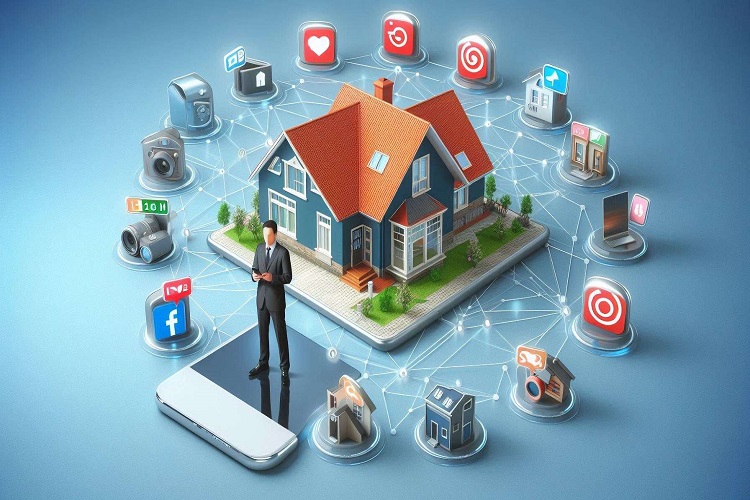Making and maintaining strong, long-lasting relationships is essential for long-term success in the continually changing real estate market. Regardless of your degree of expertise, developing relationships with clients, colleagues, and partners can help you stand out in a crowded sector. The fundamental concepts for creating lifetime alliances as well as the degree Real Estate CRM might help these projects will be discussed in this paper.
1. One should pay communication quite careful attention.
Any good relationship is primarily dependent on effective communication. This applies in real estate into guiding consumers through all stages of the buying or selling process. Regular updates, fast responses to queries, and thorough analyses of challenging topics help one to develop confidence and trust.
Tools for real estate CRM help to streamline efforts at communication. From one central hub, these systems let agents manage emails and SMS, schedule follow-up, store consumer contacts. This approach ensures that every customer question is answered and promotes a personal touch even in a packed environment.
2. Control Your Approachologies
Every client is unique hence treating them as such might have a significant effect. Customizing your connections based on interests, needs, and past experiences allows clients to understand that you value them as individual persons instead of as transactions.
Here a real estate CRM might be really helpful. Agents with complete client profiles including preferences, past properties of interest, and personal milestones will be able to more precisely adapt their recommendations and messages to the specific needs of every client. This degree of personalizing increases the chances of recommendations and repeat business as well as deepens the relationship.
3. By acting ethically, define yourself.
Any intimate relationship begins with trust; in real estate, development and preservation of this sort of confidence largely rely on transparency. Customers who are open about the state of the market, expected challenges, and real value of assets will start depending on your expertise and objectives.
A real estate CRM might encourage transparency by providing consumers with conveniently accessible information about their transactions. From thorough property histories to transparent commission arrangements, easy access to all the information promotes integrity and trust.
4. Provide first-rate, actual customer service.
Improving customer service can assist you to differentiate from competitors. This covers informed advice, fast fixes for problems, assurances of an ideal and exciting experience for your customers.
By automating client contact management, reminder creation for important follow-up, and recurring tasks, a Real Estate program system might assist you to increase your efforts at customer service. More time for proactive help and personal meetings will enable you to focus on offering exceptional service and enhancing of your relationships.
5. Stress connections depending on lifetime.
Developing strong relationships does not end with a concluded contract. Maintaining long-term partnerships requires constant communication with consumers even long after their purchase. Regular check-ins, holiday greetings, and market trend updates help you keep top of mind and demonstrate your continuous commitment to their wellbeing.
A real estate CRM could help to sustain ongoing involvement by way of reminders for follow-up letters and monitoring of important occasions like anniversaries of their property purchase. Apart from excellent customer service, this continuous engagement increases the likelihood of referrals and repeat business.
6. In networks, grab chances to
Engaging experts, attending trade events, and supporting local projects can allow you to build your network and create mutually positive relationships.
Real estate CRM may enhance networking initiatives by way of precise contact planning with business partners. Keeping an eye on meetings, follow-up calls, and suggestions enables you to establish tidy and excellent relationships with colleagues, lenders, and other key stakeholders. Networking greatly improves the connections to be produced in the real estate industry.
7. Keep becoming better.
Client and partner feedback might help you improve your products and get better knowledge about their experiences. Active seeking of opinions on what went well and places for improvement shows respect of their points of view and your determination to provide the best possible service.
Real estate software will be able to help to manage and monitor client comments by tracking client satisfaction ratings, reviewing post-transaction surveys, and spotting trends in client remarks. This data-driven approach guides your smart adjustments and continuously increases your efforts to improve your relationships.
8. Act very honestly.
First of all, development of personal connection depends on honesty being very essential. Clients and partners motivated by sincere and compassionate conduct communicate with you more actively. From your being you, honest sharing of your experiences, and compassionate character, loyalty and a tighter friendship will grow.
Once more
In the context of real estate, creating lifelong relationships requires for first-rate service, openness, superb communication, personalizing, and true connection. Real estate CRM may allow you to streamline processes, control client connections, and permit ongoing engagement, thereby enhancing these initiatives. Prioritizing these strategies and maintaining a client-centric approach will enable you to create strong, long-lasting alliances supporting the long-term industry growth.
